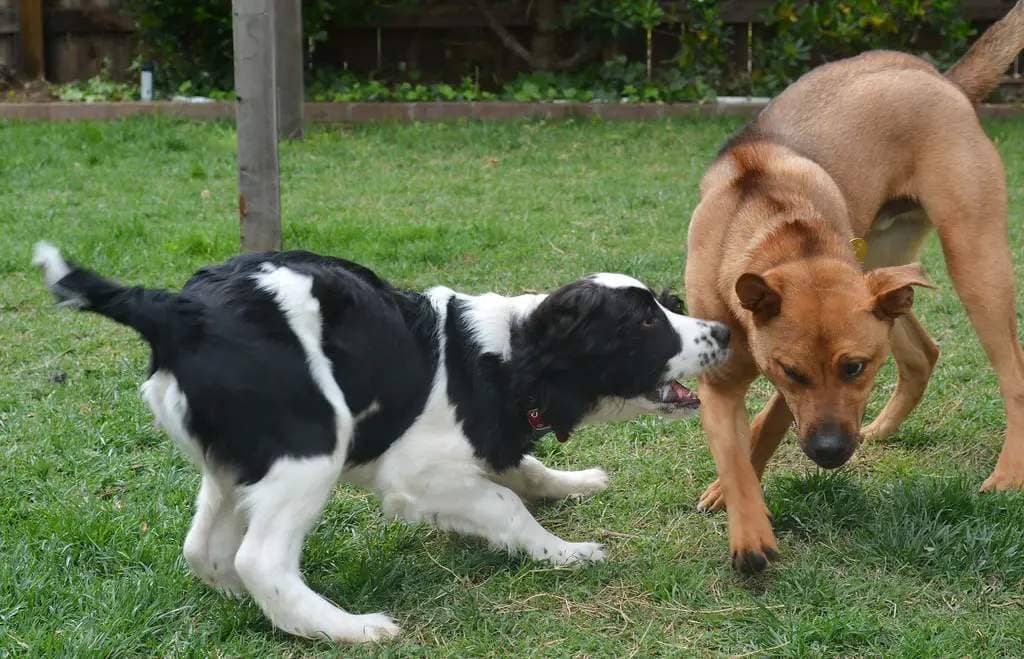Introduction
Caring for a dog is not just a responsibility, it’s a journey of love and companionship. However, this journey requires a roadmap to ensure your furry friend’s health and happiness. This comprehensive guide provides 39 essential dog care tips to help you navigate your way through this rewarding journey.
Table of Contents
- Understanding Your Dog’s Needs
- Choosing the Right Dog Food
- The Importance of Hydration
- Establishing a Feeding Schedule
- The Role of Exercise
- The Benefits of Playtime
- The Need for Regular Walks
- Understanding Your Dog’s Body Language
- The Importance of Grooming
- Bathing Your Dog
- Brushing Your Dog’s Teeth
- Taking Care of Your Dog’s Ears
- Maintaining Your Dog’s Nail Health
- Keeping Your Dog’s Coat Healthy
- Regular Vet Check-ups
- Vaccination and Deworming
- Understanding Common Dog Diseases
- The Importance of Spaying/Neutering
- Training Your Dog
- Socialising Your Dog
- Dealing with Separation Anxiety
- Managing Aggressive Behaviour
- Providing a Safe Environment
- Travelling with Your Dog
- Preparing for Emergencies
- Caring for a Senior Dog
- Caring for a Pregnant Dog
- Caring for Puppies
- Understanding Different Breeds
- Dealing with Allergies
- The Importance of Microchipping
- Choosing the Right Toys
- Choosing the Right Bed
- Choosing the Right Collar and Leash
- Dealing with Parasites
- Understanding Seasonal Care
- Caring for a Rescue Dog
- Common Misconceptions About Dog Care
- Key Takeaways
- Conclusion
Understanding Your Dog’s Needs
Every dog is unique, with its own set of needs and preferences. It’s crucial to understand your dog’s breed, age, and health status, as these factors significantly influence their care requirements. For instance, puppies and older dogs have different dietary needs compared to adult dogs. Similarly, some breeds may require more exercise or grooming than others.
Choosing the Right Dog Food
Providing your dog with a balanced diet is essential for their health and wellbeing. Ensure you’re feeding them high-quality dog food that meets their nutritional needs. Remember, the amount of food your dog needs will depend on their size, age, and activity level.
The Importance of Hydration
Hydration is equally important as nutrition. Always ensure your dog has access to fresh, clean water. Dehydration can lead to serious health issues, so it’s essential to monitor your dog’s water intake, especially during hot weather.
Establishing a Feeding Schedule
Consistency is key when it comes to feeding your dog. Establish a regular feeding schedule based on your dog’s age, health, and nutritional needs. Puppies usually need to be fed several times a day, while most adult dogs do well with two meals a day.
The Role of Exercise
Regular exercise is vital for your dog’s physical health and mental stimulation. The amount and type of exercise needed can vary based on your dog’s breed, age, and health. Always ensure the exercise is appropriate for your dog’s size and fitness level.
See Also: Channel Your Dog’s Energy & Master Recall: A Fun and Engaging Guide to Retrieving and Whistle Recall
The Benefits of Playtime
Playtime is not just fun for your dog, it’s also a great opportunity for them to exercise and stimulate their mind. Plus, it strengthens the bond between you and your dog. Incorporate a variety of games and toys to keep playtime interesting and engaging for your pooch.

The Need for Regular Walks
Walks are an essential part of a dog’s daily routine. They provide exercise, mental stimulation, and opportunities for socialisation. Regular walks also help to prevent behavioural problems such as excessive barking or chewing.
Understanding Your Dog’s Body Language
Dogs communicate primarily through body language. Understanding your dog’s body language can help you identify their needs, emotions, and any potential health issues. For example, a tucked tail often indicates fear or anxiety, while excessive panting could be a sign of stress or overheating.
The Importance of Grooming
Regular grooming is essential to keep your dog’s coat healthy and shiny. It also provides an opportunity to check for any skin issues, parasites, or abnormalities. The frequency and type of grooming required can vary based on your dog’s breed and coat type.
Bathing Your Dog
Bathing helps to keep your dog’s skin and coat clean and healthy. However, it’s important not to overdo it as excessive bathing can strip the natural oils from your dog’s skin, leading to dryness and irritation. Always use a dog-specific shampoo and ensure you rinse thoroughly to avoid any residue.
Brushing Your Dog’s Teeth
Dental care is often overlooked in dogs, but it’s a crucial part of their overall health. Regular brushing can help prevent dental diseases and bad breath. Start slowly and use a dog-specific toothpaste for the best results.
Taking Care of Your Dog’s Ears
Regular ear checks are important to prevent infections, especially in breeds with floppy ears. Clean your dog’s ears with a vet-approved solution and always dry them thoroughly after swimming or bathing to prevent moisture build-up.

Maintaining Your Dog’s Nail Health
Long nails can cause discomfort and even lead to problems with your dog’s gait. Regular nail trims can help prevent these issues. If you’re uncomfortable doing it yourself, consider seeking help from a vet or professional groomer.
Keeping Your Dog’s Coat Healthy
A healthy coat is a sign of good health. Regular brushing not only keeps your dog’s coat looking its best, but it also stimulates blood circulation and helps to distribute natural oils, promoting a healthy, shiny coat.
Regular Vet Check-ups
Regular vet check-ups are essential to monitor your dog’s health and catch any potential issues early. Your vet can provide personalised advice on diet, exercise, dental care, and more based on your dog’s specific needs.
Vaccination and Deworming
Vaccinations protect your dog from various diseases, while regular deworming helps to keep intestinal parasites at bay. Your vet can provide a suitable vaccination and deworming schedule based on your dog’s age, health status, and lifestyle.
Understanding Common Dog Diseases
Being aware of common dog diseases and their symptoms can help you identify any health issues early. If you notice any changes in your dog’s behaviour, appetite, or physical condition, it’s always best to consult your vet.
The Importance of Spaying/Neutering
Spaying or neutering not only prevents unwanted litters but also provides health benefits, including a reduced risk of certain types of cancer. It can also help to prevent behavioural issues such as marking or roaming.
Training Your Dog
Training is an essential part of responsible dog ownership. It helps to establish good behaviour, strengthens the bond between you and your dog, and ensures your dog’s safety. Remember, consistency and positive reinforcement are key in dog training.
Socialising Your Dog
Socialisation is crucial for your dog’s mental wellbeing. It helps them to feel comfortable in different environments and with various people and animals. Start socialising your dog from a young age and continue to provide socialisation opportunities throughout their life.

Dealing with Separation Anxiety
Separation anxiety is a common issue in dogs and can lead to destructive behaviour. Training, mental stimulation, and sometimes professional help can alleviate this issue. It’s important to make your departures and arrivals low-key to reduce anxiety.
Managing Aggressive Behaviour
Aggressive behaviour in dogs can stem from fear, dominance, territoriality, or other issues. Early socialisation, training, and sometimes professional help can help manage and prevent aggressive behaviour.
Providing a Safe Environment
Creating a safe environment for your dog is crucial. This includes dog-proofing your home, providing a safe outdoor space, and ensuring your dog is safe during travel. Always keep hazardous substances out of your dog’s reach and ensure they’re secure when travelling in a car.
Travelling with Your Dog
Whether it’s a trip to the vet or a holiday, travelling can be stressful for dogs. Ensure your dog is comfortable and secure during travel. Remember to bring their essentials like food, water, and a familiar blanket or toy to provide comfort.

Preparing for Emergencies
Emergencies can happen at any time. Having a plan in place can help you handle the situation calmly and effectively. This includes knowing your vet’s emergency number, having a first aid kit on hand, and knowing basic first aid procedures.
Caring for a Senior Dog
Senior dogs have different care requirements compared to younger dogs. They may need a special diet, more frequent vet check-ups, and modifications to their exercise routine. Patience and understanding are key when caring for a senior dog.
Caring for a Pregnant Dog
Caring for a pregnant dog
requires special attention to diet, exercise, and veterinary care. Your vet can provide guidance on how to best care for your pregnant dog and prepare for the arrival of puppies.
Caring for Puppies
Puppies require a lot of care and attention. This includes feeding them a suitable diet, providing plenty of socialisation opportunities, and starting training early. Regular vet check-ups are also crucial to monitor their growth and development.
Understanding Different Breeds
Different breeds have different care requirements. Some breeds may require more exercise, while others may need more grooming. Understanding your dog’s breed can help you provide the best care possible.
Dealing with Allergies
Just like humans, dogs can suffer from allergies too. Common allergens include certain foods, dust mites, and pollen. If you suspect your dog has an allergy, consult your vet for diagnosis and treatment options.
The Importance of Microchipping
Microchipping is a simple and effective way to ensure your dog can be identified if they ever get lost. It’s a quick procedure that can provide peace of mind for any dog owner.
Choosing the Right Toys
Toys play a crucial role in your dog’s mental stimulation and exercise. Choose toys that are safe and suitable for your dog’s size and chewing habits. Rotating toys can also help to keep your dog interested.
Choosing the Right Bed
A comfortable bed is essential for your dog’s rest and relaxation. The right bed should be the correct size and provide adequate support, especially for older dogs or dogs with joint issues.
Choosing the Right Collar and Leash
The right collar and leash can make walks more comfortable and safer for both you and your dog. The collar should fit well without being too tight, and the leash should be sturdy and of an appropriate length.
Dealing with Parasites
Parasites such as fleas and ticks can cause discomfort and health issues in dogs. Regular use of preventative treatments can help keep these pesky parasites at bay.
Understanding Seasonal Care
Your dog’s care requirements can change with the seasons. For example, they may need more water in the summer and a warm place to sleep in the winter. Be aware of seasonal hazards like heatstroke in summer and antifreeze poisoning in winter.
Caring for a Rescue Dog
Rescue dogs may require extra patience and care, especially if they’ve had a tough past. They may need more time to adjust to their new home and may require additional training and socialisation.
Common Misconceptions About Dog Care
There are many misconceptions about dog care, such as the belief that dogs should only be bathed infrequently or that all dogs need the same amount of exercise. It’s important to seek accurate information from reliable sources like your vet or professional dog care guides.
Key Takeaways
Caring for a dog is a rewarding experience that requires knowledge, patience, and love. Understanding your dog’s unique needs, providing a balanced diet and regular exercise, and ensuring regular vet check-ups are key to keeping your dog healthy and happy.
Conclusion
In conclusion, dog care involves a comprehensive approach that considers all aspects of your dog’s wellbeing. Each dog is unique, and their care should be tailored to their specific needs and preferences. With these 39 essential dog care tips, you’re well-equipped to provide the best care possible for your furry friend. Remember, the goal is not just to care for your dog, but to enhance their quality of life, ensuring they’re as happy and healthy as they can be.


